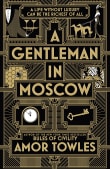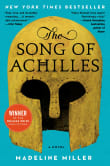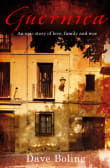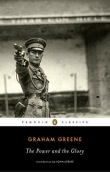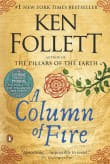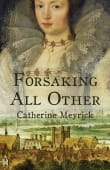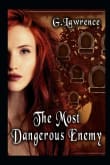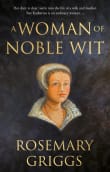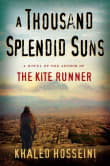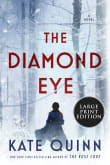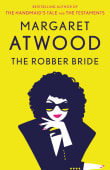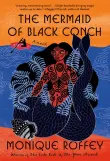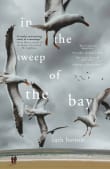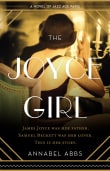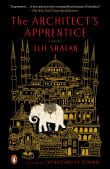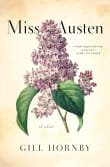Hamnet
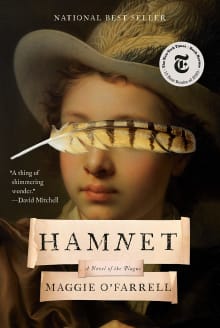
Book description
WINNER OF THE 2020 WOMEN'S PRIZE FOR FICTION - THE NO. 1 BESTSELLER 2021
'Richly sensuous... something special' The Sunday Times
'A thing of shimmering wonder' David Mitchell
TWO EXTRAORDINARY PEOPLE. A LOVE THAT DRAWS THEM TOGETHER. A LOSS THAT THREATENS TO TEAR THEM APART.
On a summer's day in…
Why read it?
41 authors picked Hamnet as one of their favorite books. Why do they recommend it?

I'm always happily surprised when a beautifully, long-winded literary book like this is so popular.
O'Farrell has a vivid imagination, and though there was a slow section toward the last third of the book that made me wonder where this story was going, I absolutely loved the way the ending pulled it all together.

Shakespeare has long been a favorite, so I was intrigued with HAMNET, a fictional rendering of young Will Shakespeare and his wife, Anne (called Agnes in the novel).
The story unfolds in alternating periods of the protagonists' lives - from early childhood to their romance/marriage, ending with Shakespeare's success at the Globe production of HAMLET. We get a full picture of mid-1500s England, Shakespeare's troubled youth and growing genius, as well as his traumatic relationship with his wife and family and the tragic death of his son.
O'Ferrell's writing is hypnotically smooth; she manages to convey so much with an…

Maggie O'Farrell is so skilled in structure and pace. I felt like I was in good hands, even though I didn't always know why she was taking me where she was--it was always worth the trip. Like "James," I feel like this novel challenges our perceptions of the past and questions what we see as settled history. But above all, it was incredibly enjoyable to read.
If you love Hamnet...

The characters in Maggie O'Farrell's book are so real and compelling that they make historical figures feel like your next-door neighbors. I've always been obsessed with Shakespeare, and it's fascinating to learn more about how much Shakespeare was inspired by the death of his son Hamnet. It shows Shakespeare the man but also brings to life the other people in his life, especially the women, who history has forgotten about.
Behind every great man is an army of unseen women, and O'Farrell's novel gives those women voice and agency, showing what life (and death) was like for women in previous…
From Naomi's list on coping with bereavement.

I didn’t want to read this book (it was a gift). I thought I’d read just a few pages to be polite… And then I couldn’t put it down! The quote on the cover says, “a thing of shimmering wonder,” which sums it up perfectly.
Hamnet takes place during 1580, another plague year (see my first recommendation!). This book's dance of love and loss, grief and forgiveness is breathtaking. And woven through it is the simple magic of herbs and medicines made by a healer’s hands.
These everyday acts become the stitches that bind this soaring novel to earth and…
From Maia's list on witchy women who love an enchanting tale.

By far, my favorite book of 2020, Hamnet, reimagines Shakespeare’s wife, Anne Hathaway, not as the older spouse who trapped him into a loveless marriage but as the woman I’ve always imagined and wanted her to be – her husband’s match in every way.
Although, having said that, this particular time travel trip wasn’t easy, given that the book opens with a scene of the boy, Hamnet, racing through a village desperately trying to find help for his sister who has been struck down by the plague - a scene that painfully mirrored my own sense of fear and…
From Erna's list on grown-up time travelers.
If you love Maggie O'Farrell...

Shakespeare wrote Hamlet, right? Yes, but why? This wonderful book manages to tell the story of the writing of perhaps the world’s most famous play without mentioning the playwright by name once.
I loved the way the writer focused on his wife and children, and through their stories shows us not only the world that Shakespeare came from but how he became the writer he was. Oh, and if you like a book that will make you cry this really is the one. I’ve rarely read such a powerful description of grief.
From Flora's list on historical fiction books with a new take on a famous event.

In the first few chapters, the book left me cold and unfeeling about the story or characters. But, years ago, I vowed to finish every book I started.
Initially, I felt no connection to Agnes, a strange, eccentric, anti-social protagonist. By mid-story, something happened—an all-in conversion. I felt the very depth of grief that pierced the body and soul of Agnes as a grieving mother. Her ravaged heart touched my own. We all know loss in some form. But the story puts words to an emptiness that, most times, words cannot express. When an author taps into emotions, it’s a…
From Anthea's list on historical fiction about overcoming loss.

I love richly realized fiction that doesn’t gloss over or modernize the historical female experience. This book is both unflinching and gorgeous as it digs into the depths of a strong woman’s wounded heart. Agnes (Anne Hathaway) must navigate the neglect of her ambitious and mostly absent husband, William Shakespeare, as she struggles to raise their children virtually alone in 16th-century England.
It broke my heart to witness the powerful, independent young Agnes slowly breaking under the unbearable weight of motherhood. A powerful mother's heart beats in every word of this peerless novel. One of the best books I've read…
From Judith's list on historical fiction with eponymous titles.

I love O’Farrell’s use of language–the depth and the poetry—and have read most of her books. I especially liked this book because I read it shortly after my daughter died in 2020, and the maternal and complicated feelings of Hamnet’s mother (Shakespeare’s wife) are so well rendered.
O’Farrell also has a magical way of recreating a time and a place. I think she’s one of the best writers when it comes to getting into a character’s head, too.
From Ana's list on bringing to life the forgotten Baroque Age.
Want books like Hamnet?
Our community of 12,000+ authors has personally recommended 100 books like Hamnet.






